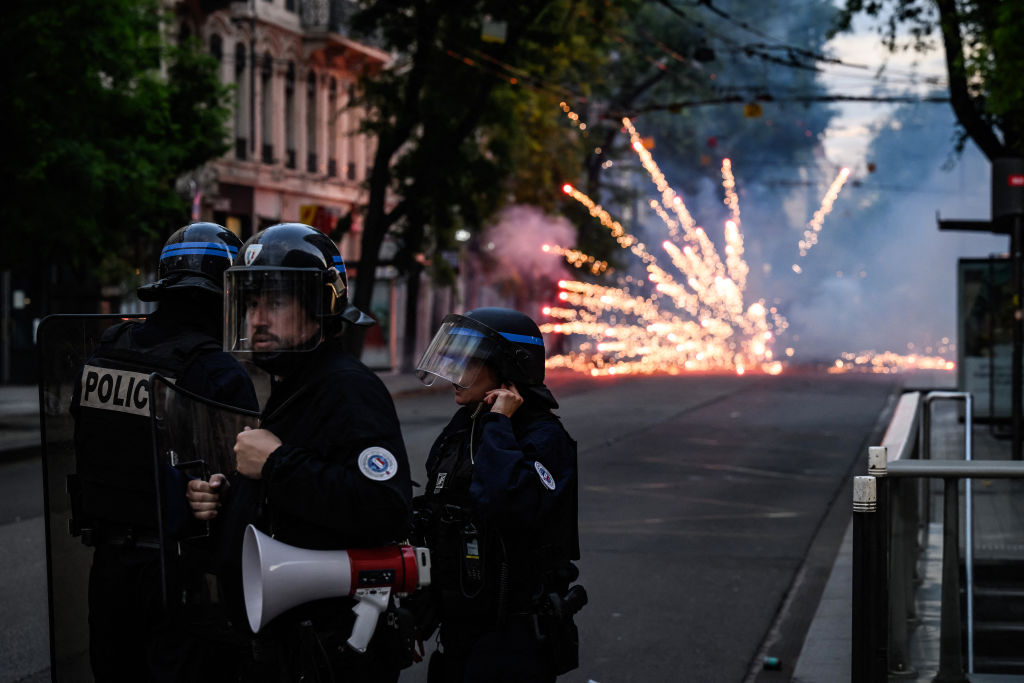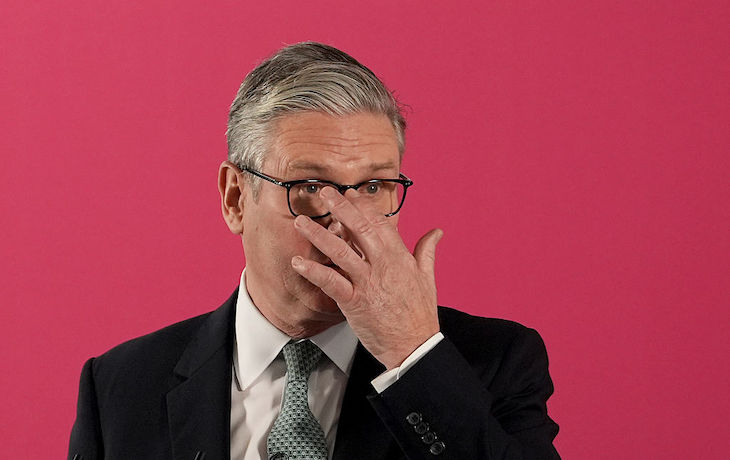Rebecca, a British friend who taught theatre studies at a celebrated English public school before she was brutally sacked during the pandemic, moved to France and looked for a job. After putting out feelers, she got a phone call from the director of a lycée (high school) in a socially challenging neighbourhood of Béziers, a city in the Occitanie region of southern France. Would she be willing to teach English, replacing a prof who’d signed off sick with stress? Game for most things, she agreed, and quickly regretted it.
Her class of 40 included, she estimated, roughly 4 students who had any interest whatsoever in learning anything. The rest, when they bothered to show up, spent their time playing games and watching TikTok videos on their smartphones. Homework assignments were mostly ignored, although one young student did hand in a crude drawing vulgarly titled, ‘nique ta mère’. Translate it yourself. She asked the directrice what she could do to discipline her students. Her firm answer: nothing at all, unless you want to be attacked. She finally quit after the cops arrived and dragged one of her students out of school after a bloody playground confrontation. She lasted one term.
The enforcement seems likely to be problematic. Youth must be accompanied, but by whom?
France has a problem with young people, and more particularly with young people from the quartiers sensibles, the grim housing estates that surround most French cities, infested with drugs, gangs and unemployment. What to do? The schools have evidently surrendered. Parents are overwhelmed. But some French mayors, especially of the right, are proving less willing to capitulate. They are resorting, desperately, to couvre-feux, curfews, ordering their municipal police to detain young people on the streets at night.
In Béziers, Mayor Robert Ménard this week issued a decree that in three districts of the city, no minor under 13 may be on the street unaccompanied between 11pm and 6 am. In Pointe-à-Pitre, in the overseas French territory of Guadaloupe, a curfew has been imposed for the next month between 8pm and 5am. The curfew was ordered during a visit to Guadeloupe by Interior Minister Gérald Darmanin and entered into force on Monday evening for a ‘renewable’ month, said Prefect Xavier Lefort.
Thirty-five municipal police officers and 15 gendarmes were deployed on Monday evening to issue cautions before a full implementation of the curfew in the most crime-ridden areas. In Nice on the French Riviera a curfew will be implanted in seven neighbourhoods for youths up to 13-years-old on 1 May, for the entire summer, from 11pm to 6am. Mayor Christian Estrosi says he’s ready to extend the curfew zone and include youths of up to 16 years old, especially in areas of drug trafficking, where children are frequently used by gangs as couriers.
Will these measures, which are now likely to be extended more widely, really prove effective? There’s a ring of ‘something must be done, this is something, do this,’ to these curfews.
The enforcement seems likely to be problematic. Youth must be accompanied, but by whom? ‘By a relative, a brother, a cousin, a couple of family friends… In short, by an adult who can justify a link of responsibility on the minor,’ the Mayor explains.
Mayor Ménard told The Spectator today that while it was by no means certain that the curfew would prove effective, ‘it’s an experiment.’ He had tried a similar measure nine years ago but it was declared unconstitutional after a legal challenge. ‘Things have changed,’ he told me. ‘We’re in a different epoch.’
Many are sceptical that parents will be able to control their children, that young people will respect the curfews, or even that youth represent the biggest public order problem. According to survey of delinquency and insecurity in 2023, published in early 2024 by the Ministry of the Interior, under 13-year-olds represented only 2 per cent of those accused in attacks on people in France, compared to 36 per cent for those aged 30 to 44), and only 1 per cent of those accused of violent theft (compared to 44 per cent for those aged 18 to 29).
But such statistics seem of limited use, since they don’t capture the harm done to young people themselves as they hang out, unsupervised, in crime-infested neighbourhoods. Sophie Mazas, president of the Hérault Federation of the League for Human Rights (LDH), denounced the curfew in Béziers as a violation of fundamental rights, perpetrated by a right-wing mayor. It’s not a point of view shared by all.
‘All the figures we have show that there are more and more children who committing criminal acts,’ says the Béziers Mayor. ‘They are more and more violent, we have to answer that.’ He doubts any legal challenge can succeed. ‘I can’t imagine, with the situation in France, that it is detrimental to any freedom whatsoever. It is in fact a protector of the freedoms and safety of the children in question.’
Critics may have a point that curfews are more symbolic than effective. They are nevertheless popular with voters. A CSA poll for CNews, Europe 1 and the JDD, published on Sunday, indicates that 67 per cent of French people want curfews for minors across France.








Comments